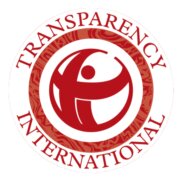Best Employer Lawyers in Papua New Guinea
Share your needs with us, get contacted by law firms.
Free. Takes 2 min.
Or refine your search by selecting a city:
List of the best lawyers in Papua New Guinea
About Employer Law in Papua New Guinea
Employer law in Papua New Guinea governs the relationship between employers and employees, ensuring fair practices in the workplace. The legal framework encompasses various aspects, including employment contracts, wages, working conditions, occupational health and safety, employee rights, and dispute resolution. Papua New Guinea's employment laws aim to protect workers' rights while balancing the needs of employers to operate efficiently. These laws are primarily enshrined in the Employment Act, which sets the standard for employment practices and ensures that both parties fulfill their obligations.
Why You May Need a Lawyer
There are numerous situations where individuals or businesses may seek legal assistance related to employer issues in Papua New Guinea. Common scenarios include negotiating employment contracts, advising on dismissals and redundancies, resolving workplace disputes, ensuring compliance with health and safety regulations, addressing claims of discrimination or harassment, and assisting with wage-related concerns. Legal professionals can provide valuable guidance to navigate complex legal requirements and represent interests effectively in disputes.
Local Laws Overview
The key aspects of local laws in Papua New Guinea relevant to employers include:
- Employment Contracts: Contracts must be clear on terms such as job role, compensation, duration, working hours, and termination conditions.
- Minimum Wage: The government sets minimum wage rates, ensuring workers receive fair compensation for their services.
- Working Conditions: Regulations stipulate working hours, rest periods, and conditions to promote a safe and healthy work environment.
- Health and Safety: Employers are required to provide a safe workplace and comply with occupational health and safety standards.
- Anti-Discrimination: Laws protect employees from discrimination based on gender, race, religion, or other protected characteristics.
- Dispute Resolution: Mechanisms are in place to handle disputes, including mediation and arbitration, to maintain industrial peace.
Frequently Asked Questions
What are the basic requirements for establishing an employment contract in Papua New Guinea?
An employment contract should outline clear terms of employment, including job description, salary, working hours, and termination procedures.
Are there laws against workplace discrimination?
Yes, Papua New Guinea has laws that prohibit discrimination based on race, gender, religion, and other protected categories in the workplace.
What is the legal minimum wage in Papua New Guinea?
The government periodically reviews and sets minimum wage standards, and employers must comply with these regulations to avoid penalties.
How can an employer legally terminate an employee?
Termination must adhere to the terms outlined in the employment contract and applicable laws, ensuring fair procedures are followed and reasons are justified.
What should an employer do in case of a workplace accident?
Employers must report accidents to relevant authorities, provide medical assistance, and comply with occupational health and safety regulations.
Can an employee challenge an unfair dismissal?
Yes, employees can challenge unfair dismissals through legal mechanisms such as mediation or by lodging a complaint with the Department of Labour and Industrial Relations.
What are employer obligations regarding occupational health and safety?
Employers must ensure a safe work environment, provide necessary safety equipment, and conduct regular risk assessments to comply with legal standards.
How can wage disputes be resolved?
Wage disputes may be resolved through direct negotiation, mediation, or seeking assistance from the Department of Labour and Industrial Relations.
Is it mandatory for employers to provide written contracts?
While verbal agreements can be made, written contracts are highly recommended to prevent misunderstandings and provide a clear record of employment terms.
What recourse do employers have in cases of employee misconduct?
Employers can address misconduct through disciplinary procedures outlined in the employment contract, seeking legal advice if necessary to ensure actions comply with the law.
Additional Resources
For more information and assistance regarding employer-related legal issues in Papua New Guinea, consider the following resources:
- Department of Labour and Industrial Relations: Provides guidance on employment standards and handles disputes.
- Employer Federation of Papua New Guinea: Offers support and resources for employers navigating legal requirements.
- Legal Aid Commission: Available for individuals needing legal assistance but unable to afford a private lawyer.
- National Youth Development Authority: Provides programs and support related to youth employment.
Next Steps
If you are seeking legal assistance regarding employer issues in Papua New Guinea, consider the following steps:
- Identify the specific legal issues or questions you have regarding employment.
- Gather relevant documents, such as employment contracts, emails, or records of correspondence.
- Consult with a qualified lawyer experienced in employer law to discuss your rights and obligations.
- Contact the Department of Labour and Industrial Relations or relevant bodies for additional guidance if required.
- Consider mediation or arbitration as alternative dispute resolution methods before proceeding to court.
Lawzana helps you find the best lawyers and law firms in Papua New Guinea through a curated and pre-screened list of qualified legal professionals. Our platform offers rankings and detailed profiles of attorneys and law firms, allowing you to compare based on practice areas, including Employer, experience, and client feedback.
Each profile includes a description of the firm's areas of practice, client reviews, team members and partners, year of establishment, spoken languages, office locations, contact information, social media presence, and any published articles or resources. Most firms on our platform speak English and are experienced in both local and international legal matters.
Get a quote from top-rated law firms in Papua New Guinea — quickly, securely, and without unnecessary hassle.
Disclaimer:
The information provided on this page is for general informational purposes only and does not constitute legal advice. While we strive to ensure the accuracy and relevance of the content, legal information may change over time, and interpretations of the law can vary. You should always consult with a qualified legal professional for advice specific to your situation.
We disclaim all liability for actions taken or not taken based on the content of this page. If you believe any information is incorrect or outdated, please contact us, and we will review and update it where appropriate.
Browse employer law firms by city in Papua New Guinea
Refine your search by selecting a city.















